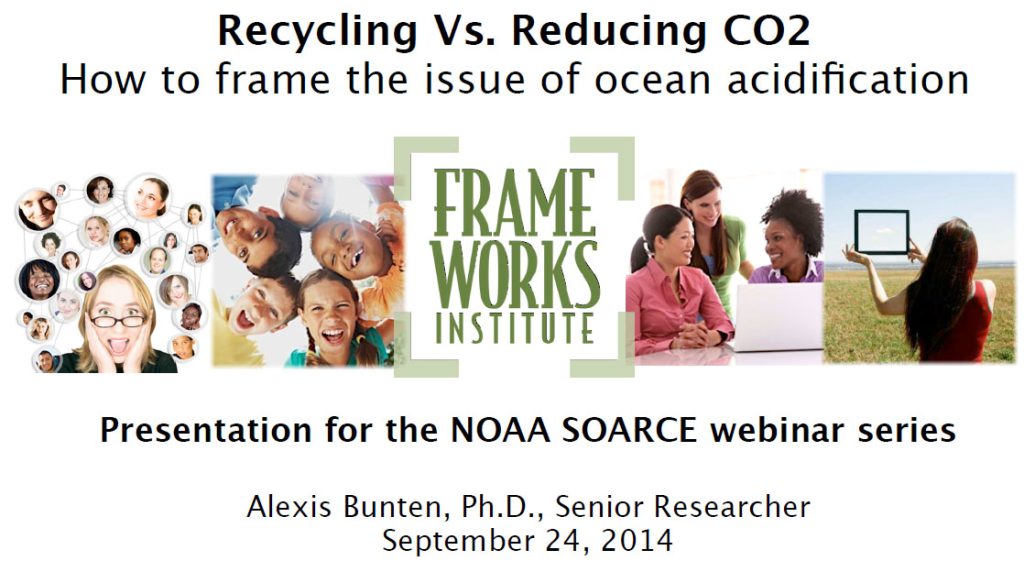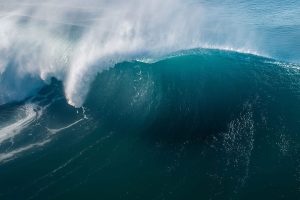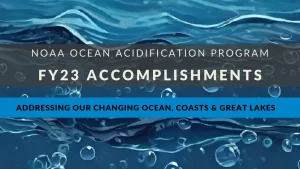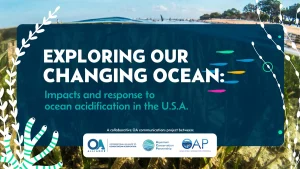SOARCE Webinar
Presenter: Alexis Bunten, The FrameWorks Institute
Primary Audience: Informal Educators & Communicators
Date/Time: Wednesday, Sept. 24th, 12pm PDT (3pm EDT)
Project website: http://www.frameworksinstitute.org/climate-change-and-oceans.html
Did you ever wonder just what is in peoples’ heads that causes them to reach the wrong conclusions (despite the provision of accurate information) about the environmental issues that affect our lives?
This webinar shares the latest findings from cognitive research conducted by the FrameWorks Institute about how to communicate the issue of ocean acidification to the public. In this webinar, you will learn the widely shared cultural schemas that shape Americans’ preconceived biases around the issue of ocean acidification. These pervasive patterns of thought, called “cultural models,” prevent Americans from understanding of the cause and solution to ocean acidification. Researchers at the FrameWorks Institute tested ways to best communicate ocean acidification to the public using explanation and metaphor. The results of FrameWorks rigorous descriptive and experimental research process will be presented along with opportunities to practice and ask questions.
Relevant materials include:
“Getting to the Heart of the Matter:Using Metaphorical and Causal Explanationto Increase Public Understanding of Climate and Ocean Change”
“Just the Earth Doing Its Own Thing”
About the Speaker:
Alexis Celeste Bunten is a senior researcher with the FrameWorks Institute. Her areas of expertise include heritage, interpretation, cross-cultural communication, community development, tourism, and workplace ethnography. Among other issue areas, Dr. Bunten has been conducting research and training in climate and ocean change communications since 2011. Prior to coming to FrameWorks, she taught at UCLA and Humboldt State University, completed postdoctoral fellowships at UC Berkeley and UC Santa Cruz, and was an invited scholar at the University of Paris-Sorbonne, and University of Victoria, Wellington. Dr. Bunten received a B.A. in art history at Dartmouth College and a Ph.D. in socio-cultural anthropology at UCLA
Dr. Bunten can be reached at abunten@frameworksinstitute.org.
</ br>re






